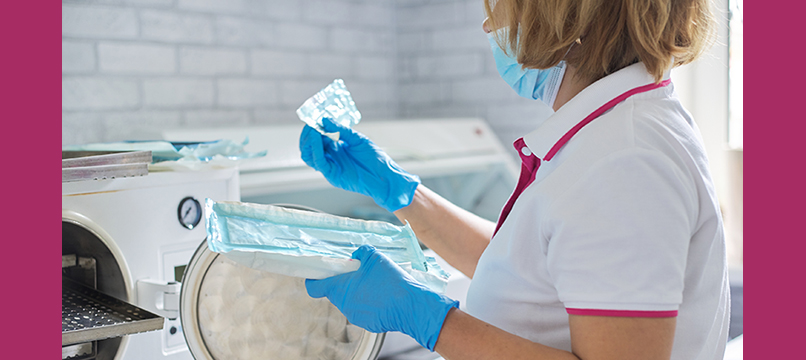A Day in the Life: Central Sterile Processing
Central sterile processing has always had an extremely important role in the hospital, but the COVID-19 has put a spotlight on cleanliness and disinfection. Absolute adherence to regulations and standards, to keep both the staff and patients safe, are critical. Some equipment that previously stayed on the hospital floors (such as patient records) is coming to sterile processing for cleaning and disinfecting. Healthcare facilities have an increased need for dedicated people to prevent disease transmission. I'm Sofia, and I'm here to explain the important role that central sterile processing technicians fulfill.
What's an Average Day Like for a Central Sterile Processing Technician?
Since I work in a hospital, there is an entire sterile processing department dedicated to cleanliness. Central sterile processing is comprised of three main steps: decontamination, preparation and packing, and sterilization. I work with my team to collect instruments and devices, perform these three processes, and inspect our work. Once this is complete, I store the instruments in their respective areas so they can be easily found and handed to surgeons later. With so many surgeries being performed each day, I certainly stay busy! However, I am happy to be part of this team and make surgeries safer for patients.
What are Employers Looking for in Central Sterile Processing Technicians?
Being detail-oriented is perhaps the most important aspect of this career. Additionally, you should be familiar with the correct use of each instrument and device you clean. Employers typically like to hire central sterile processing technicians who have education or prior experience in this field. That's why completing a diploma program could be beneficial to your career search.
Why Choose Stautzenberger College?
At Stautzenberger College, you could earn your central sterile processing technician diploma in as little as 10 months. You do not need a high school diploma to be accepted into this program. Courses such as Anatomy and Physiology, Sterilization Procedures, Decontamination of Surgical Instruments, Professional Success Strategies, and Preparation and Packaging of Surgical Instruments prepare students for their future careers. Our program prepares you to take both the CBSPD (Certification Board for Sterile Processing and Distribution) exam and the IAHCSMM (International Association of Healthcare Central Service Material Management) exam to become a Central Sterile Processing Distribution Technician (CSPDT). Passing the exam could present you with more employment opportunities.
The Stautzenberger College faculty and staff want to see you succeed. They offer an evening program for you to fit college into your busy work schedule. Instructors make themselves available outside of class for questions and tutoring. Career Services provides resume writing assistance, mock interviews, and other resources to help you find an employer. The College offers financial aid to those who qualify.
Why wait any longer to begin your career training? Call 888.859.8225 or submit the Request Information form online today. You don't have to settle for a dead-end job. You deserve a career that leads you and your community to a better future.
#college #sterileprocessing #healthcareworkers #hospitallife #sctoday

